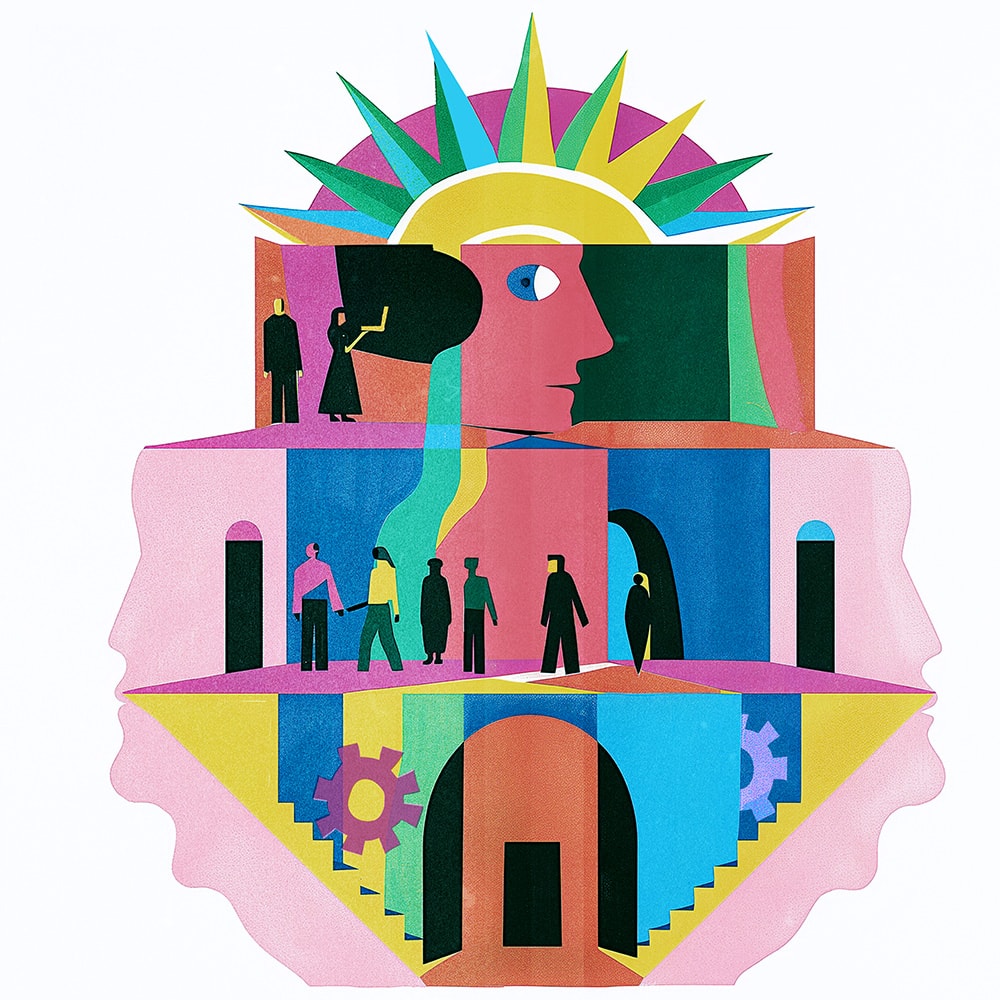In the mid-20th century, John McGrath was a screenwriter and playwright working with England’s Royal Court Theatre, which enjoyed a reputation for staging “dangerous” and “vital” works, often about that great mass of people known as the working class. But McGrath looked around one day and realized that the real performance was being done by the institution itself, as nothing in it—neither the actors, the audience, the aesthetics, or the location—was truly representative of, created with, or fundamentally for the working class. So, by the late 1960s, McGrath gave up his promising career in the bourgeois theatre of the day and founded the 7:84 Theatre Company, whose first task was to figure out just how the working class really lived and entertained itself.
The company—so named because around that time 7 percent of the U.K.’s population held 84 percent of its wealth—went on to develop modes of theatrical storytelling and audience engagement through strong bonds with working-class communities for almost 40 years, which McGrath chronicled in a series of lectures titled A Good Night Out. The 7:84 Theatre Company was structurally wedded to economic justice in both form and content.
What is required from all of us is that we have a real horizon of structural change, a true optimism that the economic reality inside and outside the theatre can change, and a commitment to see it through.
I start with McGrath’s experience because, if the working class in the U.S. today fares no better than in McGrath’s day (I’d argue it doesn’t), and our theatre is similarly not truly representative of, created with, or fundamentally for the working class, then we must be similarly emboldened to tear the floorboards out.
We all exist under an economic system, capitalism, whose coercive laws supersede any notion of individual moral aspirations and firmly constrict the realm of choices available to both worker and employer alike. As a system it is punishingly competitive, requiring the pursuit of profit over people, and resulting in firm divisions among classes of people who have markedly counterposed interests. Indeed, wealth held by billionaires in the U.S. increased by over 87 percent since March 2020; as of 2022, 735 billionaires own more wealth than the bottom 50 percent of all U.S. households.
I cite this backdrop because the theatre is not set apart from it. It is the context in which we engage in theatrical production. Like any industry, the theatre produces a commodity that is both useful and exchangeable. This exchange value is what brings the theatre into direct and inescapable confrontation with the laws of capitalism. We who are interested in justice, then, have two fundamental responsibilities: to understand the laws and limitations of the specific socioeconomic system within which we exist and contribute to the emergence of something better.
MANY SIZES FIT MANY
Depending on any number of factors from size and type of institution or company to location and aesthetic, the approach to economic justice may differ drastically. This is a contradiction which must be embraced. Forgoing a one-size-fits-all approach will be essential, as will constant experimentation. What is required from all of us is that we have a real horizon of structural change, a true optimism that the economic reality inside and outside the theatre can change, and a commitment to see it through. Many small acts, if persisted in, contribute to a qualitative shift. Try it all, see what works, and then try again.
THINK LIKE ORGANIZERS
Theatre can’t find its way to justice on its own or in a bubble. We should integrate ourselves into the movements and struggles of our communities. For instance, even if artist’s wages did not increase, those wages would go further if the fights for affordable housing and free healthcare were won. Moreover, if we could connect the cause of reducing military spending with the call for greater arts funding, we would find powerful allies in the fight for human dignity within the arts and beyond. Theatres should borrow fewer strategies from corporations, who grow rich while the rest of us suffer, and glean more from organizers who understand long-term visioning, community-building, and principled and strategic methods of building powerful collective efforts. Theatre workers and institutions have creativity and resources to lend to community movements and organizations. It can be all mutually reinforcing, and everybody wins.
Democracy is a means to an end, and that end should be closing the gap between the labor and needs of the workers who make the whole thing possible.
EMBRACE THE SOLIDARITY ECONOMY
The Solidarity Economy (SE) is an ancient mode of social organization that is experiencing a rebirth. It builds on cooperative economic models to develop networks of values-driven enterprises that use the strength of their collective ecology to diffuse the pressures of capitalism, implementing tools such as community land trusts, time banking, worker-owned enterprises, and cooperative banks in tandem. Nati Linares and Caroline Woolard produced a report through Grantmakers in the Arts on the arts solidarity economy, featuring theatre companies around the country trying their hand at this model.
UNIONIZE DEMOCRACY
CHANGE THE WORLD
We must confront the coercive laws of our present economic system non-idealistically. No amount of feel-good symbolic gestures will change the system. In 1935, Bertolt Brecht wrote, “The great truth of our time is that our continent is giving way to barbarism because private ownership of the means of production is being maintained by violence.” He continued that “merely to recognize this truth is not sufficient,” urging us to name it in an effort of putting an end to the violence.
I think this is what McGrath had in mind when he walked away from the Royal Court to pursue “a more active intervention by the theatre in forming contemporary life and contributing to the futures of our society.” In his case, the concept of economic justice was the basis for creative innovation, which would in turn feed greater economic justice. Change such as this may seem difficult, but difficult is far from impossible. All we need to do is start.
Chris Myers (he/him) is an actor and cultural worker based out of New York City.
RELATED CONTENT
Support American Theatre: a just and thriving theatre ecology begins with information for all. Please join us in this mission by joining TCG, which entitles you to copies of our quarterly print magazine and helps support a long legacy of quality nonprofit arts journalism.






